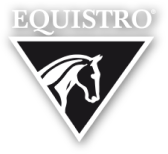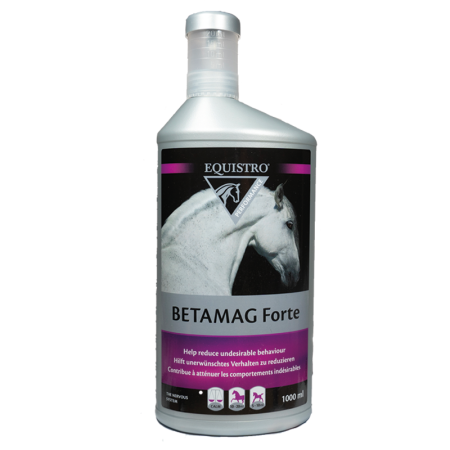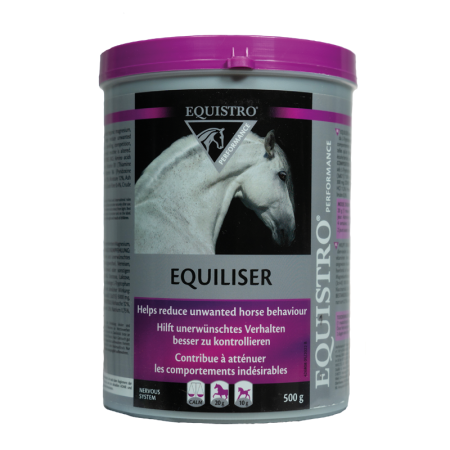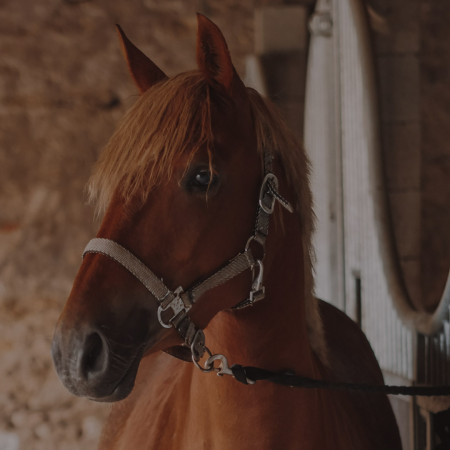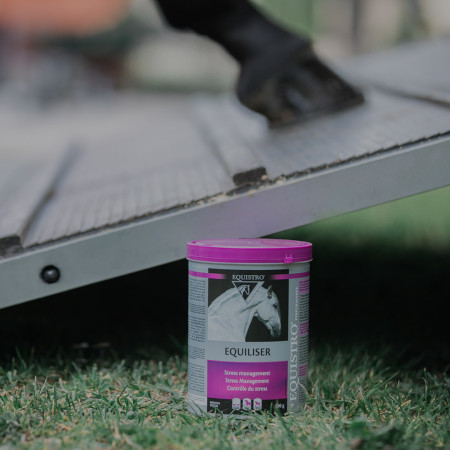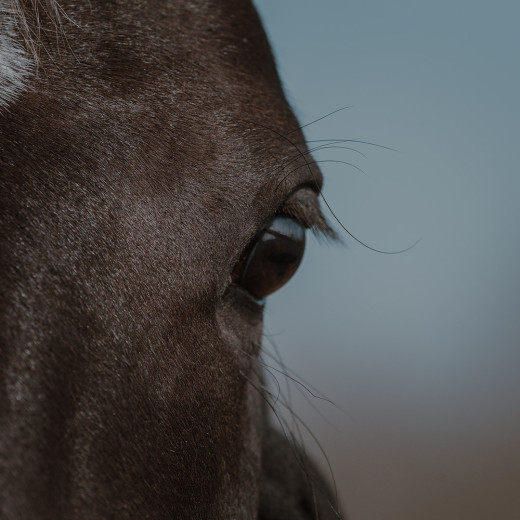
Calming horses
Facing situations that a horse isn’t able to judge as being harmless creates stress which it then instinctively tries to escape. Recurrent situations involving stress for horses can include:
- Being transported in a horse trailer
- The atmosphere at a show or event
- Changing stables/getting used to a new environment
- A mare being separated from her foal (weaning)
- A change in stable companions
- Extreme weather (e.g. thunderstorms)
- Loud noises (e.g. tractors, shouting, fast vehicles, fireworks)
- Vet phobia - Seeing the farrier
- Staff confinement
Certain factors can thus trigger nervous behaviour or anxiety if a horse is already that way inclined. This can result in nervous restlessness or excessive irritability. The more pure-bred a horse, the greater its agitation and disquiet will be. But even horses with a calm character by nature may become nervous with unusual happenings. Handling these horses may then become very difficult – if not impossible – without risk to horse and owner. If a horse’s natural threshold for tolerating unfamiliar situations is constantly challenged, this can in the long run result in undesirable behaviours (e.g. weaving, head-shaking), behavioural changes (e.g. permanent restlessness without any apparent reason) or even in health problems (e.g. stomach ulcers).
Investigating causes – what is behind this?
Such reactions may first of all be merely the manifestation of the horse’s response to health-related problems (e.g. shortness of breath from holding the head at too extreme an angle, mares constantly in season as an indication of irregularities of the ovaries). It is also necessary to make a clear distinction between responses to pain, aggressive behaviour and insecurity. Ideally, an expert should be consulted in such cases (e.g. a veterinarian specialized in animal behaviour). On the other hand, nervous restlessness or excessive irritability can also indicate a deficiency in key nutrients responsible for the proper functioning of nerve and muscle tissue.
Going short? Make up for it!
A lack of magnesium or zinc can make horses with weak nerves even more overstrung. Nervous, restless behaviour can also be managed with B complex vitamins and the amino acid tryptophan.
Magnesium
is a mineral that plays a key role in the metabolism of nerves, muscle and bones. The susceptibility of nerve cells can be aggravated by a lack of magnesium, which above all occurs at times of high-performance through magnesium and other important trace and bulk elements being sweated out by the horse. A lack of magnesium is likely if a horse shows tense muscles, in addition to excessive excitability and extreme sensitivity to being touched even lightly. Magnesium requirements are especially high in situations of physical exertion, as then far more magnesium than usual is consumed under the influence of the stress hormone adrenaline. Since the magnesium content in basic feed like hay, silage, grass and grain varies widely, it is thus virtually impossible to guarantee a horse will obtain a sufficient daily intake beyond the individual requirement. Horses that have to work generally do not get enough magnesium if they are fed only with hay/silage, grass and oats (or other type of grain).
Zinc
is an essential trace element that cannot be synthesised by the organism itself, zinc therefore needs to be continuously supplied in the diet. Zinc is an elementary co-factor of over 200 enzymes and is involved in numerous vital metabolic processes, including for example helping to strengthen the nerves. An increased requirement for zinc thus not only comes about at the time of coat change or problems with a horse’s skin or hooves, but also when subject to greater physical exertion. A deficiency in zinc can manifest itself in many different ways, initially sometimes in the form of changes that are not very specific. Besides eczema, disorders of wound healing or growth and increased susceptibility to infection, restlessness can also point to a lack of zinc.
Vitamin B complex
B complex vitamins are also essential to ensure the optimal functioning of nerve tissue. In particular, the vitamins B1 (thiamine) and B6 (pyridoxine) play a key role in the metabolism of nerves, brain and muscles, as well as acting as building blocks of messenger substances responsible for transmitting stimuli between nerve cells.
Tryptophan
A precursor to the messenger substance serotonin, the essential amino acid L-tryptophan is characterised by its calming properties and has a positive effect on well-being. An adequate supply of tryptophan is generally above all ensured with horses that get a balanced, high-protein diet. Although a deficiency is unlikely under normal circumstances, supplementing tryptophan with a horse’s normal rations may help to reduce susceptibility of the nerves.
Dr. med. vet. Caroline Fritz
